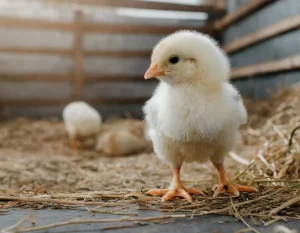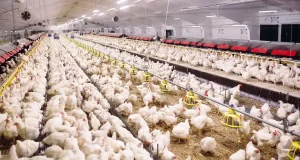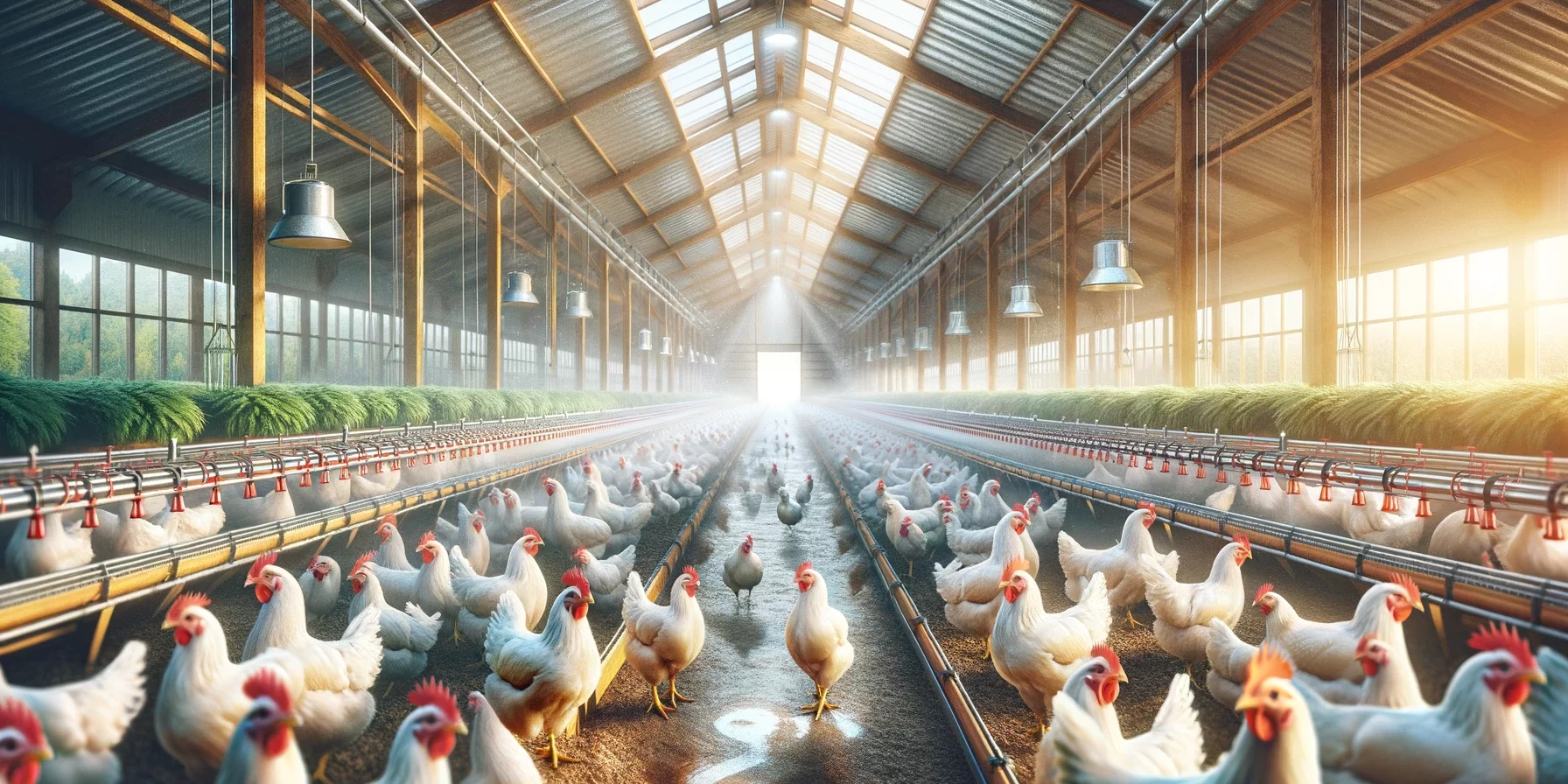Infectious Bursal Disease Virus (IBDV) is a highly contagious virus that poses a significant threat to the poultry industry.
It primarily affects young chickens, causing an immunosuppressive condition that can lead to severe health complications and reduce the efficacy of vaccines.
Understanding IBDV‘s impact and implementing effective control measures is crucial for maintaining poultry health and productivity.
Characteristics of IBDV
 IBDV targets the bursa of Fabricius, an essential organ in birds responsible for immune system development. The virus leads to the destruction of B lymphocytes, impairing the bird’s immune response and making it susceptible to other infections. Clinical signs of IBDV include depression, watery diarrhoea, dehydration, and immunosuppression, which can significantly affect flock performance.
IBDV targets the bursa of Fabricius, an essential organ in birds responsible for immune system development. The virus leads to the destruction of B lymphocytes, impairing the bird’s immune response and making it susceptible to other infections. Clinical signs of IBDV include depression, watery diarrhoea, dehydration, and immunosuppression, which can significantly affect flock performance.
Transmission and Impact of IBDV
IBDV is transmitted through oral or nasal exposure to contaminated environments, including water, feed, equipment, and litter. It can spread rapidly within flocks, leading to high morbidity rates. The economic impact of IBDV is profound, with potential losses stemming from reduced growth rates, increased mortality, and additional costs associated with control measures and treatment.
Chlorine Dioxide: A Solution for IBDV Control
Chlorine Dioxide (ClO2) is a potent disinfectant known for its broad-spectrum antimicrobial activity, including effectiveness against viruses like IBDV. Unlike traditional disinfectants, ClO2 is effective at low concentrations and does not form harmful by-products, making it an ideal choice for use in poultry production.
How Chlorine Dioxide Works Against IBDV
Chlorine Dioxide acts by penetrating the viral envelope and disrupting the protein structures, effectively inactivating the virus. Its oxidative mechanism ensures rapid action against IBDV, reducing the risk of transmission within the flock. Additionally, ClO2’s efficacy is not influenced by the presence of organic matter, making it suitable for use in various farm conditions.
Implementing ClO2 in Poultry Operations
 Scotmas provides advanced ClO2 delivery systems, ensuring precise dosing and consistent disinfection. By integrating ClO2 into the water treatment process, poultry producers can effectively reduce the viral load in the environment, minimising the risk of IBDV infection. Regular application of ClO2 can help maintain high standards of biosecurity, protecting flocks from IBDV and other pathogens.
Scotmas provides advanced ClO2 delivery systems, ensuring precise dosing and consistent disinfection. By integrating ClO2 into the water treatment process, poultry producers can effectively reduce the viral load in the environment, minimising the risk of IBDV infection. Regular application of ClO2 can help maintain high standards of biosecurity, protecting flocks from IBDV and other pathogens.
The Role of Scotmas in IBDV Prevention
Scotmas is dedicated to supporting the poultry industry in the fight against IBDV. With innovative ClO2 solutions, Scotmas offers effective, safe, and environmentally friendly options for controlling IBDV in poultry operations. By choosing Chlorine Dioxide, producers can enhance their biosecurity measures, safeguard flock health, and improve overall productivity.
For further information on how Chlorine Dioxide can benefit your poultry operation and help control IBDV, contact Scotmas. Our team of experts is committed to providing effective solutions tailored to your specific needs, ensuring the health and well-being of your poultry flocks.






